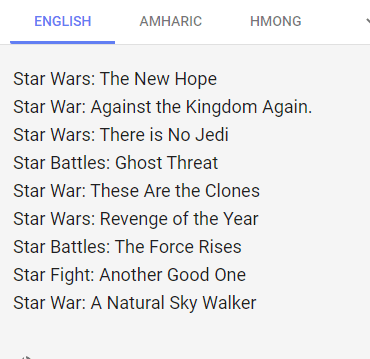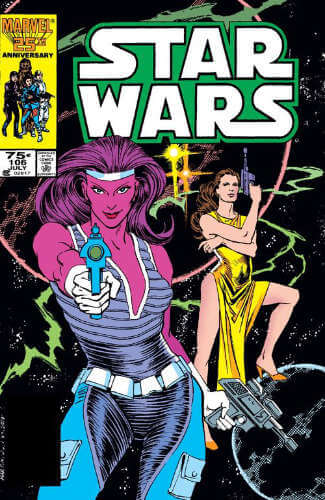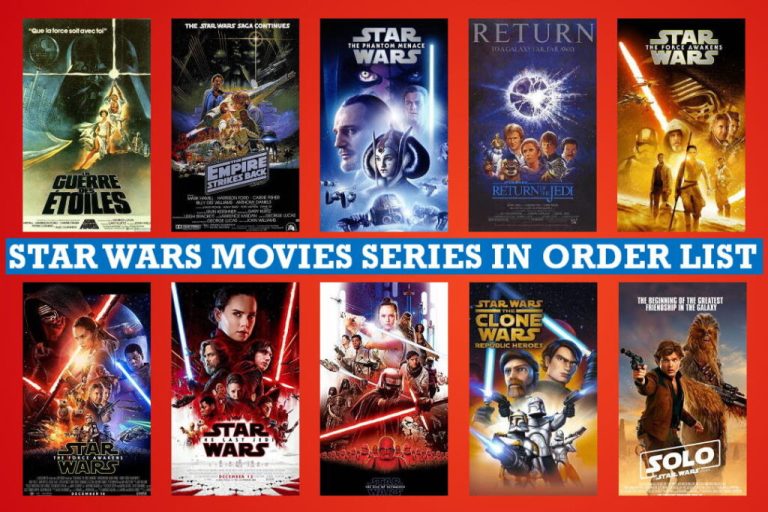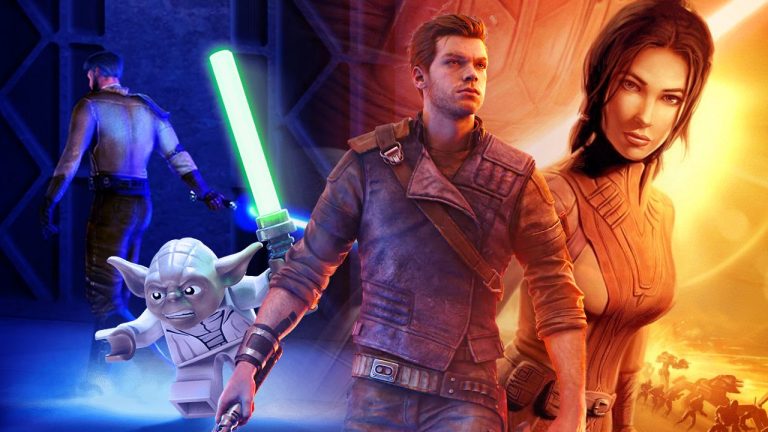How Is The Star Wars Music Composed?
If you’re a fan of the epic Star Wars saga, then you’ve probably found yourself humming along to the iconic music that accompanies the films. But have you ever wondered how this incredible music is composed? From the thrilling opening crawl to the emotional themes of the characters, the Star Wars music has become ingrained in pop culture. In this article, we’ll explore the fascinating process behind the creation of this legendary soundtrack and discover the secrets behind its unforgettable melodies.
The Star Wars music is composed by the legendary John Williams, who is known for his ability to capture the essence of a story through his compositions. With his incredible talent and keen understanding of the characters and their journeys, Williams crafts melodies that resonate with audiences on a profound level. Each character in the Star Wars universe has their own distinct theme, which adds depth and emotion to their on-screen presence. From the heroic and triumphant “Main Theme” to the hauntingly beautiful “Princess Leia’s Theme,” the music of Star Wars has become as beloved as the films themselves.
So, how does John Williams create these musical masterpieces? It all begins with a deep understanding of the story and characters. Williams works closely with the director and studies the script, analyzing the themes and motifs that run through the narrative. He then translates these ideas into musical motifs, using various instruments and orchestration techniques to bring them to life. The result is a symphony of sound that enhances the storytelling and elevates the emotional impact of each scene. In the next section, we’ll delve into the specific techniques and musical elements that make the Star Wars music so extraordinary. So, grab your lightsaber and get ready to embark on a musical journey through a galaxy far, far away!
The Star Wars music is composed by renowned composer John Williams. He has created some of the most iconic and memorable film scores in history, including the Star Wars theme. Williams uses a combination of orchestral instruments and synthesizers to create the epic and otherworldly sounds of the Star Wars universe. His compositions often feature leitmotifs, which are recurring musical themes associated with specific characters, places, or ideas. Williams’ music adds depth and emotion to the Star Wars films, enhancing the storytelling and immersing the audience in the galaxy far, far away.
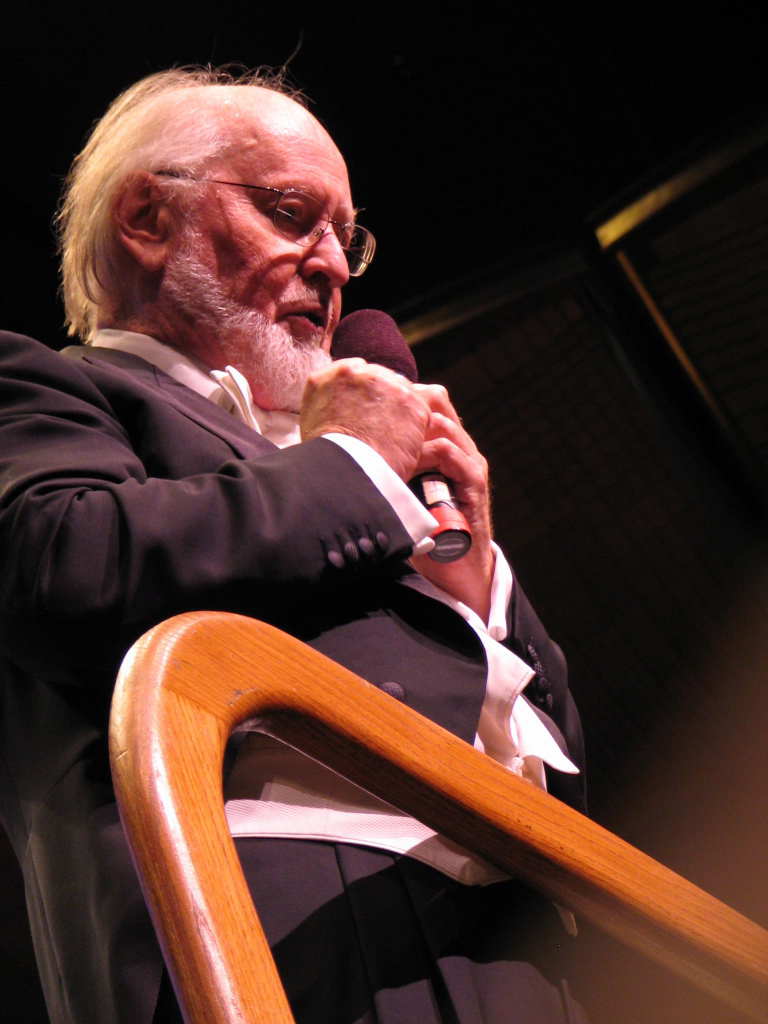
##How is the Star Wars Music Composed?
Star Wars is known for its iconic music that has become synonymous with the franchise. The music plays a crucial role in setting the tone, enhancing the storytelling, and evoking emotions in the audience. But have you ever wondered how the Star Wars music is composed? In this article, we will delve into the creative process behind the legendary music of Star Wars and explore the techniques and inspirations that have made it so timeless.
The music for Star Wars is composed by the legendary composer, John Williams. Williams is a master of his craft and has created some of the most memorable film scores in history. He has an incredible ability to capture the essence of a film and elevate it through his music. When it comes to composing the music for Star Wars, Williams follows a meticulous process that involves collaboration with the director and a deep understanding of the story.
To begin the composition process, Williams starts by watching an early cut of the film. This allows him to get a sense of the pacing, the characters, and the overall tone of the story. He carefully analyzes each scene and considers how the music can enhance the emotions and the narrative. Williams pays close attention to the dialogue, the action, and the visual cues to determine when and where the music should be placed.
Once Williams has a clear understanding of the film, he begins to sketch out musical ideas. He often starts by creating themes for the main characters and important story elements. These themes serve as leitmotifs that are woven throughout the film, helping to create a sense of continuity and familiarity. Williams takes inspiration from classical composers such as Wagner and Holst, who also used leitmotifs in their compositions.
After creating the initial sketches, Williams works closely with the director to refine the music. This collaboration is essential in ensuring that the music aligns with the director’s vision for the film. They discuss the emotions that need to be conveyed in each scene and the specific musical elements that can achieve that. Williams takes feedback from the director and makes adjustments accordingly.
Once the composition is finalized, the music is recorded with a full orchestra. Williams is known for his use of large orchestras, which gives the music a grand and epic sound. The recording process is a crucial step in bringing the music to life and capturing the emotion and energy of the compositions. Williams conducts the orchestra himself, ensuring that every note is played with precision and passion.
The music of Star Wars is not only composed by John Williams, but it is also deeply intertwined with the visual and narrative elements of the films. The music serves as a storytelling device, enhancing the action, highlighting character moments, and creating a sense of wonder and excitement. Without the iconic music, the Star Wars films would not have the same impact or emotional resonance.
In conclusion, the music of Star Wars is composed through a meticulous process that involves collaboration, creativity, and a deep understanding of the story. John Williams, the mastermind behind the iconic scores, brings the films to life through his music, capturing the essence of the characters and the epic nature of the Star Wars universe. The music serves as a powerful tool in engaging the audience and immersing them in the world of Star Wars.
Key Takeaways: How is the Star Wars music composed?
- Star Wars music is composed by legendary composer John Williams.
- Williams uses a variety of musical techniques to create the iconic sound of Star Wars.
- He incorporates leitmotifs, which are recurring musical themes associated with specific characters or ideas.
- Williams also uses orchestration to enhance the epic and emotional nature of the music.
- The music is often recorded with a full symphony orchestra and choir, adding to its grandeur.
Frequently Asked Questions
Here are some frequently asked questions about how the Star Wars music is composed:
1. What is the process of composing the Star Wars music?
Composing the iconic Star Wars music involves a collaborative effort between the composer, director, and the rest of the creative team. It starts with discussions about the overall tone, themes, and emotions that need to be conveyed through the music. The composer then begins to create musical sketches, experimenting with different melodies, harmonies, and instrumentations.
Once the initial ideas are approved, the composer starts orchestrating the music, assigning different parts to various instruments and ensembles. This process requires a deep understanding of musical composition techniques and the ability to bring out the desired emotions through the music. The final step involves recording the music with a full orchestra, ensuring that every note and nuance is captured perfectly.
2. Who composed the Star Wars music?
The legendary composer John Williams is responsible for composing the iconic music for the Star Wars franchise. His work on the original Star Wars film in 1977 revolutionized film scoring and created some of the most recognizable and beloved musical themes in cinematic history. John Williams’ music captures the epic scope and emotional depth of the Star Wars universe, and his compositions have become synonymous with the saga itself.
Williams’ ability to create memorable melodies and his masterful orchestration skills have made him one of the most celebrated film composers of all time. His contributions to the Star Wars music have not only enhanced the storytelling but also become a crucial part of the franchise’s identity.
3. What musical elements are used in the Star Wars music?
The Star Wars music incorporates a wide range of musical elements to create its distinctive sound. One of the key components is the use of leitmotifs, which are musical themes associated with specific characters, places, or concepts. These leitmotifs, such as the “Force Theme” or “Imperial March,” help to establish a strong musical identity for different aspects of the Star Wars universe.
The music also draws inspiration from various musical styles, including classical, jazz, and even traditional folk music. This eclectic blend of styles adds depth and richness to the compositions, while also reflecting the diverse nature of the galaxy far, far away.
4. How does the Star Wars music enhance the storytelling?
The Star Wars music plays a crucial role in enhancing the storytelling and emotional impact of the films. It helps to establish the mood and atmosphere of different scenes, whether it’s the thrilling excitement of a lightsaber duel or the emotional weight of a character’s sacrifice.
The music also serves as a narrative tool, signaling important moments or character developments. For example, the ominous “Imperial March” is often associated with the presence of Darth Vader or the Empire, instantly conveying a sense of menace and power. On the other hand, the uplifting “Force Theme” represents hope, heroism, and the mystical nature of the Force.
5. How has the Star Wars music influenced popular culture?
The Star Wars music has had a significant impact on popular culture, transcending the boundaries of the film franchise. Its catchy melodies and memorable themes have become instantly recognizable, even to those who haven’t seen the movies. The music has been widely parodied, referenced, and celebrated in various forms of media, from TV shows to commercials to symphony concerts.
Furthermore, the success of the Star Wars music has inspired a new generation of composers and musicians, who have been influenced by John Williams’ iconic compositions. The use of leitmotifs and the blending of different musical styles have become common techniques in film scoring, thanks to the groundbreaking work done in the Star Wars films.
Star Wars: How John Williams Composes a Theme
Final Thought: The Epic Symphony Behind Star Wars
As we delve into the captivating world of Star Wars, it becomes clear that the music plays an integral role in creating the iconic atmosphere and emotional depth of the saga. The composition of the Star Wars music is a masterpiece in itself, combining the genius of John Williams with the vision of George Lucas. Through a symphony of orchestral brilliance, Williams brings the characters, themes, and battles to life, leaving an indelible mark on the hearts of fans worldwide.
The genius of John Williams lies in his ability to capture the essence of each character and scene through his musical compositions. From the triumphant “Star Wars Main Theme” to the hauntingly beautiful “Princess Leia’s Theme,” Williams weaves a tapestry of emotions that resonate with the audience. The music becomes a character in its own right, guiding us through moments of triumph, despair, and hope. The use of leitmotifs, recurring musical themes associated with specific characters or ideas, adds depth and continuity to the storytelling, allowing us to connect with the characters on a deeper level.
In addition to its emotional impact, the Star Wars music is a technical marvel. Williams employs a wide range of musical techniques, from traditional orchestration to innovative instrumentation. The use of brass and percussion creates a sense of grandeur and excitement, while the strings evoke a tender and emotional response. The incorporation of electronic elements and unique instruments, such as the theremin and the famous “Darth Vader breathing” sound, adds a futuristic and otherworldly dimension to the score. This eclectic blend of styles and sounds is a testament to Williams’ skill as a composer and his ability to push the boundaries of what is possible in film music.
In conclusion, the Star Wars music is a testament to the power of collaboration and artistic vision. John Williams’ compositions have become synonymous with the Star Wars universe, enriching the storytelling and captivating audiences for generations. Through his mastery of melody, harmony, and instrumentation, Williams has created a musical legacy that will continue to inspire and transport us to a galaxy far, far away. So, next time you watch a Star Wars film, listen closely to the music, and let it take you on a journey of epic proportions. May the Force be with you!

